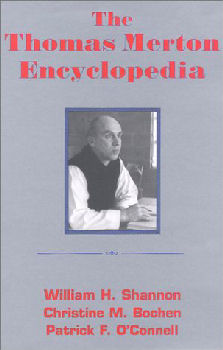
|
Posted March 2, 2006
Book: The Thomas Merton Encyclopedia Authors: William H. Shannon, Christine M. Bochen, Patrick F. O’Connell Orbis Books, New York, 2002, pp. 572 An Excerpt from the Introduction:
An Excerpt from the Book: Paradise Among the myths – the imaginative patterns that convey a truth transcending literal facts – that Thomas Merton finds most powerful in conveying the wisdom of the Christian message is the return to paradise. Salvation is imaged as the restoration of that primordial unity and harmony of all creation in God that had been shattered by sin. It is this traditional image of the mysterious journey forward to the beginning, the reversal of the fall, that Merton repeatedly invokes in his efforts to describe what it means to be an authentic Christian, an authentic contemplative, an authentic human being. By usurping the role of God rather than participating in it, by the futile desire to substitute himself for God as the center of his own being and of his world, Adam denied his own deepest identity as formed in the image of God, as well as his vocation to participate in the creative work of God. His refusal to accept his own contingency, his denial of his radical dependence upon his Creator was, in Merton’s familiar terminology, the preference for the false self of egotistical desires over the true self loved into being by God, a state of self-division and alienation from reality. “Man is created for peace, delight, and the highest spiritual happiness. . .But man’s weakness and superficiality, his inordinate love of a self metaphysically wounded with contingency, makes the Paradise life impossible. But the salvation brought by Christ reverses the effects of the fall. Christ, the new Adam, restores the paradisal unity disrupted by the first Adam’s act of self-glorification, which was simultaneously an act of self-alienation. “In the beginning, Adam was ‘one man.’ The Fall had divided him into ‘a multitude.’ Christ had restored man to unity in Himself. The Mystical Christ was the ‘New Adam’ an in Him all men could return to unity, to innocence, to purity, and become ‘one man.’ Omnes in Christo unum. Table of Contents: A to Z on subjects, themes, places etc. in Merton’s life |
|
